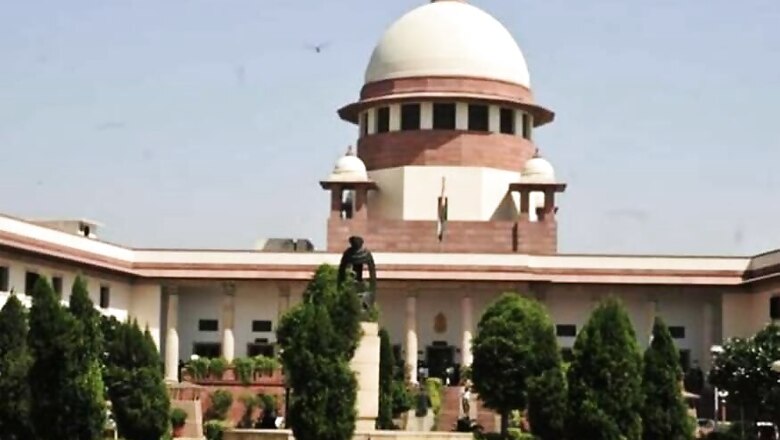
views
New Delhi: The Supreme Court on Monday was told that migrant workers who have been stranded for no fault of their own, with zero earnings and no financial support are being charged very high train fares for their journey to native places and railways and the States should not charge them.
The petitioners Jagdeep S Chhokar, former director in-charge of IIM, Ahmedabad, and lawyer Gaurav Jain, who have sought direction to authorities to allow migrant workers across the country to return home after conducting coronavirus tests, filed an affidavit saying railways and the states should not be charging them for the train and bus travel being arranged for them for journey to their native places.
“That migrant are being required to pay around Rs. 800 as train fares and the same is highly unjustified…It is submitted that migrants have been stranded for no fault of their own, with zero earnings and not financial support. Therefore, it must be made clear that the Railways and the states would not be charging the migrant workers for the train and bus travel being arranged for them,” the supplementary affidavit filed on Monday said.
It said that on May 3, the Ministry of Home Affairs (MHA) in a letter to Chief Secretaries and Administrators, clarified about the movement of distressed stranded persons, in which the ministry has given a very narrow definition of stranded migrants by including only those who had moved from their native places just before the lockdown period but could not return to their native places on account of restrictions placed on movement of persons and vehicles as part of lockdown measures.
“It is common knowledge that a very large number of migrants, including labourers, street vendors, maids, factory workers etc., stay in their cities of migration for months and thus, such a narrow definition would exclude millions who have lost all income and savings and wish to go back to their native villages. Thus, it is submitted by the Petitioners herein that this Court may direct the Centre that all migrants should be allowed to travel back to their native hometowns and villages,” it said.
The petitioners said that all the migrant workers who wish to go back to their hometown/villages, including those who are living in shelter homes/relief camps as well as those who might be stuck in rented accommodations, must be treated as ‘stranded’ and their travel by trains or buses should consequently be facilitated free of cost by the central government.
“It has come to light that the Centre is taking a narrow view of the category of people who are eligible for travel under Home Ministry’s order dated April 29 and resultantly, many migrant workers who may not be living in shelter homes/relief camps and might be stuck in rented accommodations may be excluded from the Centre’s definition of the word ‘stranded’ qua the order dated April 29,” it said.
The affidavit, while referring to media reports said that some states have already started sending the migrants to their native places and the MHA by its order of April 29 has left it upon the States to allow the travel of migrants to/from other states after both the states agree.
“It is submitted that all the migrant workers who wish to go back to their native hometowns and villages should be allowed to go back after screening as a matter of right and no migrant desirous of travelling back to his/her home should be left behind…the right of migrants to go back to the native places should not be dependent on the States’ willingness and it should be the centre’s obligation to allow their travel,” it said.
The affidavit while referring to a report published by Stranded Workers Action Network (SWAN), based on the interaction with 1,531 groups of workers (around 16,863 people), said that around 50 per cent workers had rations left for less than one day which has remained unchanged since the first phase of the lockdown.
“Further, since the national lockdown began, 4 out of 5 workers who reached out do not have access to government rations while 68 per cent still do not have access to cooked food. The report further states that with no cash relief for migrants, 64 per cent have less than Rs. 100 left with them and that more than 97 per cent (out of 0,383) have not received any cash relief from the government,” it said.
On April 27, the apex court had said, “This institution is not hostage of government,” after advocate Prashant Bhushan, appearing for petitioners alleged that the government''s view is being blindly considered by the courts without verifying it, while fundamental rights of people especially migrant workers are not being enforced.
Chhokar and Jain in their plea had said that in wake of the extension of the nationwide lockdown, the migrant workers who are among the worst affected category of people must be allowed to go back to their homes after being tested for COVID-19.
The apex court on April 27 had sough response of the Centre on their plea.
It said that those migrant workers who test negative for COVID-19 must not be forcefully kept in shelters or away from their homes and families against their wishes.




















Comments
0 comment